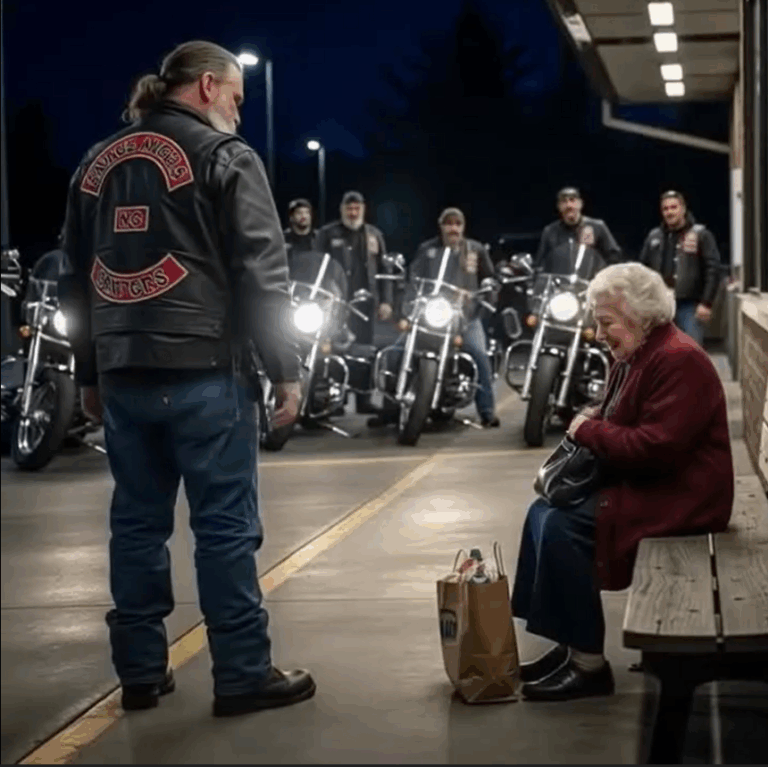Margaret Carter never imagined that the person she trusted most—her only son—would one day walk away and leave her behind.. It was a cold winter afternoon when it happened. Margaret, now in her late seventies, was spending the day with her son Paul, just as they had done many times before. He had picked her up from her small home to help her run a few errands—something she had begun to rely on more often as her mobility declined and public transportation became more difficult to navigate.
They drove to a nearby grocery store. Paul parked close to the entrance, helped her out of the car gently, and handed her a short grocery list, saying with a casual smile, “I’ll just circle around the block while you shop—I’ll be back in a few minutes.” Margaret didn’t think anything of it. She had trusted Paul all her life. After all, he was her son—the one person she believed would always be there.
She made her way slowly through the store, picking up a few essentials: bread, milk, tea bags, some fruit. She paid at the register and stepped back outside, the sharp wind immediately cutting through her thin coat. She walked to the bench near the store entrance and sat down, clutching her bags and scanning the parking lot. Paul’s car wasn’t there.
She waited, thinking maybe he had been delayed in traffic or stopped for gas. But as minutes turned into an hour, and then another, her hope began to fade. She tried calling, but the call went straight to voicemail. Her fingers, now trembling from both the cold and fear, struggled to hold the phone. Then, finally, a text came through.
Margaret’s heart lifted—until she read the words: “Found a nursing home for you. They’ll pick you up tomorrow.” That was it. No explanation. No apology. Just a message that felt like a final goodbye. Her heart sank as the realization set in: her only son had abandoned her. Not just emotionally—but physically, deliberately, and without warning. Tears welled in her eyes, blurring the cold world around her. She sat on that bench, stunned, numb, and utterly alone.
Just then, the sound of engines broke the silence. A group of bikers pulled into the parking lot. They were members of a motorcycle club—Savage Angels MC—with leather jackets and tough expressions that might have made others turn away. But one of them, a large man with a beard and kind eyes, noticed Margaret sitting alone. He walked over slowly and knelt beside her.
“Ma’am, are you alright?” he asked gently, his voice filled with concern. Margaret, still shaken, told him what had happened in as few words as she could manage. When she mentioned her late husband’s name—Robert Carter—the man’s expression changed. “Wait… Robert Carter?” he asked. “Your husband helped me once—years ago, when I was just starting out. I never forgot his kindness.”
His name was Bear, and in that moment, he made a decision: he was going to help Margaret, no matter what. The Savage Angels didn’t just offer her a ride. They loaded her groceries into one of their saddlebags, took her home, helped her inside, and made sure everything in her house was in order. Over the following weeks, they kept visiting—bringing meals, checking on her, fixing things around the house. Slowly, they became her new family.
They called her “Queen Margaret”, a nickname that made her smile every time she heard it. For the first time in years, her home was filled with laughter, stories, and people who genuinely cared about her wellbeing—not out of obligation, but out of loyalty and love. Though her son never came back—not even to check if she was okay—Margaret found something she never expected: a chosen family. A group of people who didn’t share her blood, but who stood by her in her darkest moment. People who made her feel seen, valued, and protected.
She came to understand something many people learn too late:
True family isn’t always the one you’re born into—it’s the people who choose to stand beside you when you need them most.




